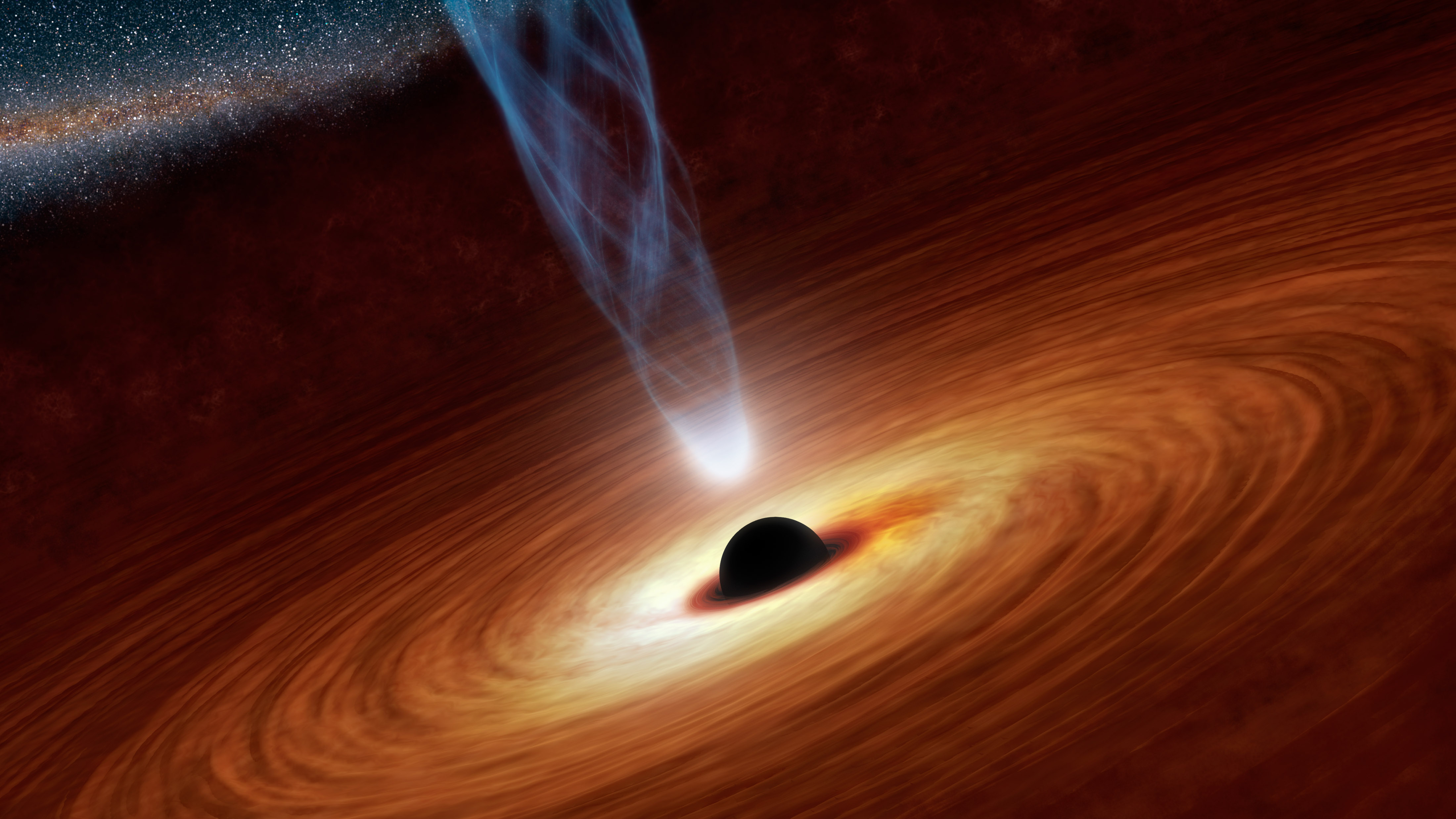Are black holes surrounded by a firewall?
Black holes suck in anything that gets too close to them—even light. In their interiors, researchers imagine objects that, according to current physics, should not even exist: singularities, where matter becomes infinitely dense and hot and classical physics breaks down. The area around a black hole is also a hot subject of discussion. In particular, astrophysicists run into problems when they consider a black hole simultaneously with the general theory of relativity and quantum physics.
One problem arises with the quantum states of all the particles that fall into the black hole. For the rest of the universe, information on these particles is lost forever. But that does not agree with quantum physics: if an entangled pair is generated and one particle of this pair falls into the black hole, the second particle would still be able to provide information.
Researchers solve this “information paradox” in various ways: first, it might be that black holes simply do not adhere to, and thus violate, quantum physics. In other words, there might be some unknown loopholes in quantum physics. The second solution is Hawking radiation. By means of this radiation, a black hole would gradually evaporate and in this way also give up information. But this cannot completely solve the paradox. Therefore, physicists have proposed a “firewall” around black holes, an area of intense, insurmountable radiation on the event horizon that completely destroys any observer. However, this idea violates a stipulation of the general theory of relativity, according to which a free-falling observer should not actually notice anything dramatic when crossing over an event horizon.
Now, with the help of string theory, physicists have made new calculations and determined that the likelihood of any electron hitting a photon of firewall radiation is negligibly low. Even if there were a firewall, it wouldn’t do anything. Real clarification will probably come only with a theory of quantum gravity, which physicists are currently searching for feverishly.
